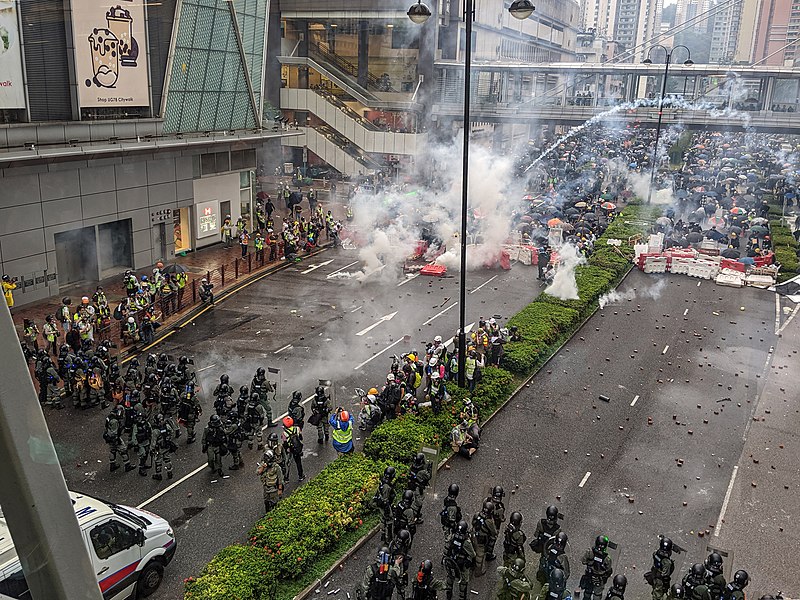Protesters gather in Tsuen Wan, an area in Hong Kong, on Aug. 25.
Hong Kong
As with the protests in Chile, the events in Hong Kong were ignited by a single issue and have since expanded into a larger call for systematic and structural change. Protests erupted after a proposed extradition bill threatened the complicated, semi-autonomous status of Hong Kong. The movement has remained largely leaderless; the unofficial motto of the movement is “Be like water.”
The movement began in the spring and exploded into a huge movement in June. Protests have become increasingly violent, but according to The Guardian, no deaths have been officially reported as a result of police action, in sharp contrast to the Chilean movements. The police have been accused of collaborating with triad gangs, who have attacked protesters, due to their slow response to emergency calls, the BBC reported.
Reports vary on the number of people involved in the protests. For the June demonstrations, organizers of the events claim millions of people participated, while police reported that only around 338,000 marched. An on-the-site professor estimated for Reuters that between 50,000-80,000 people participated. In July, protesters stormed the legislative building and vandalized it.
Although the initial issue of the extradition bill has been solved, the protesters have since laid out five key demands. According to the BBC, these include an investigation into alleged police misconduct, retraction of the characterization of the protests as riots, the release and exoneration of arrested protesters, resignation of Chief Executive Carrie Lam and the implementation of universal suffrage.
Although the tactics of the police have come under fire, protesters have also engaged in activities beyond property damage or clashing with police. Video evidence shows protesters hindering EMT efforts by attacking ambulances and even posing as paramedics to attack anti-protesters and hide from the police.
The movement still continues, with constant clashes between protesters and police a regular scene in the streets of Hong Kong.

